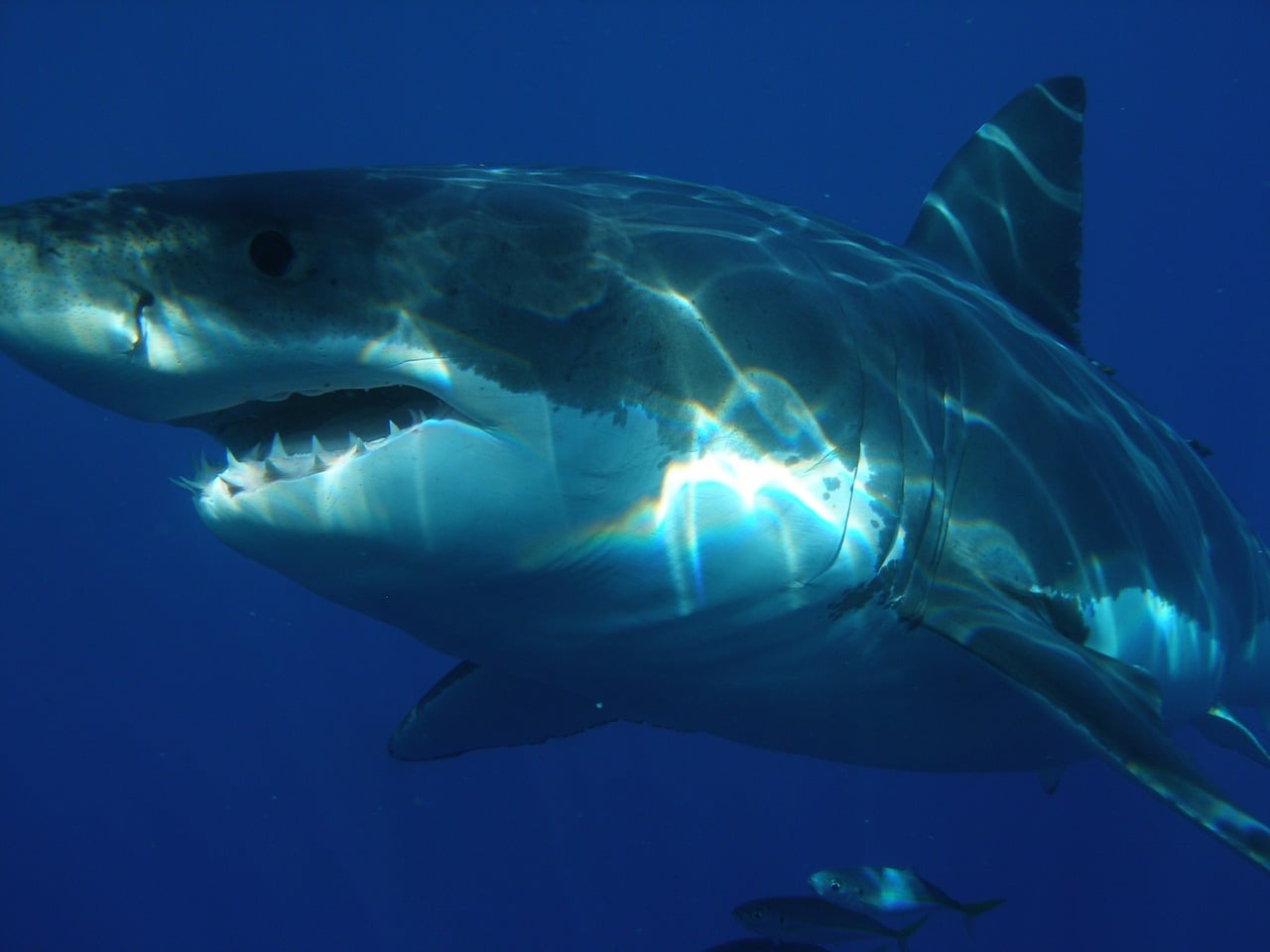Great white sharks are some of the most recognized marine animals on our planet. Not only are they known as the largest shark in the ocean, but have also made significant appearances in various documentaries and in the Hollywood culture. A group of scientists has decoded the great white shark genome, finding it could be used to make medicines, in particular, a possible cure for cancer.
Great white sharks have various characteristics which make them unique from other animals, as well as other sharks. For one, they are much larger than ordinary sharks, growing to 20 feet long and weighing over 7,000 pounds. Such strength has allowed them to dive into the oceanic dark depths of 4,000 feet.
In order to understand these characteristics, but also the biology as a whole, scientists decoded the great white shark genome and revealed its secrets. The team which participated in the endeavor consisted of scientists from Nova Southeastern University’s (NSU) Save Our Seas Foundation Shark Research Center and Guy Harvey Research Institute (GHRI), as well as Cornell University College of Veterinary Medicine and Monterey Bay Aquarium. Scientists also compared the genome to the giant whale shark and humans, revealing the results in the journal Proceedings of the National Academy of Sciences.
Having decoded the great white shark genome revealed much more than just its tremendous size. Scientists also found that the genome is one and a half times the size of the human genome, finding a lot of genetic changes which could make up for their long life. Scientists believe that sequencing certain DNA and making changes to the molecular composition could contribute to a stronger defense mechanism and in that way fight diseases such as cancer.
“Not only were there a surprisingly high number of genome stability genes that contained these adaptive changes, but there was also an enrichment of several of these genes, highlighting the importance of this genetic fine-tuning in the white shark,” Mahmood Shivji, Ph.D., director of NSU’s Save Our Seas Foundation Shark Research Center and GHRI said in a statement.
“Decoding the white shark genome is providing science with a new set of keys to unlock lingering mysteries about these feared and misunderstood predators—why sharks have thrived for some 500 million years, longer than almost any vertebrate on earth” Dr. Salvador Jorgensen, a Senior Research Scientist at the Monterey Bay Aquarium, who co-authored the study said.
More importantly, the decoded great white shark genome reveals evolutionary adaptations in the genes which are associated to how their wounds heal quickly.
“We found positive selection and gene content enrichments involving several genes tied to some of the most fundamental pathways in wound healing, including in a key blood clotting gene,” said Stanhope. “These adaptations involving wound healing genes may underlie the vaunted ability of sharks to heal efficiently from even large wounds.”
Having decoded the genome, it will also help scientists preserve the lives of great white sharks in the ocean, as well as other sharks, whose populations are rapidly declining as a result of over fishing, according to Steven O’Brien, a conservation geneticist at NSU.
“The genome data will be a great asset for understanding white shark population dynamics to better conserve this amazing species that has captured the imagination of so many,” he said.





